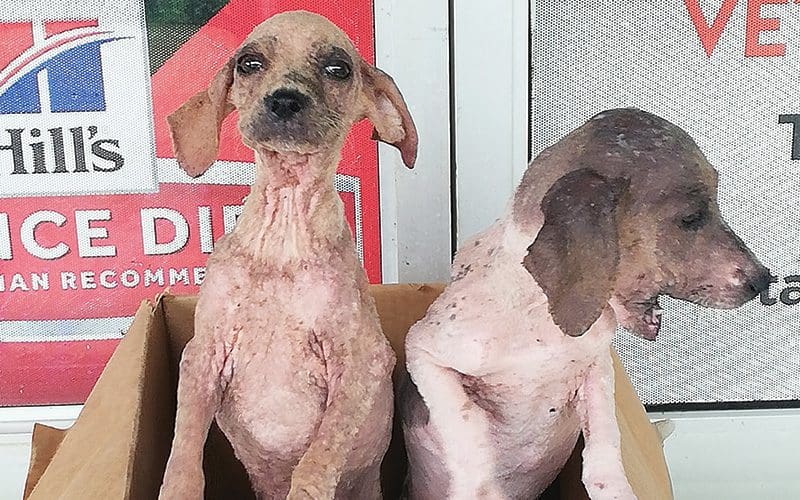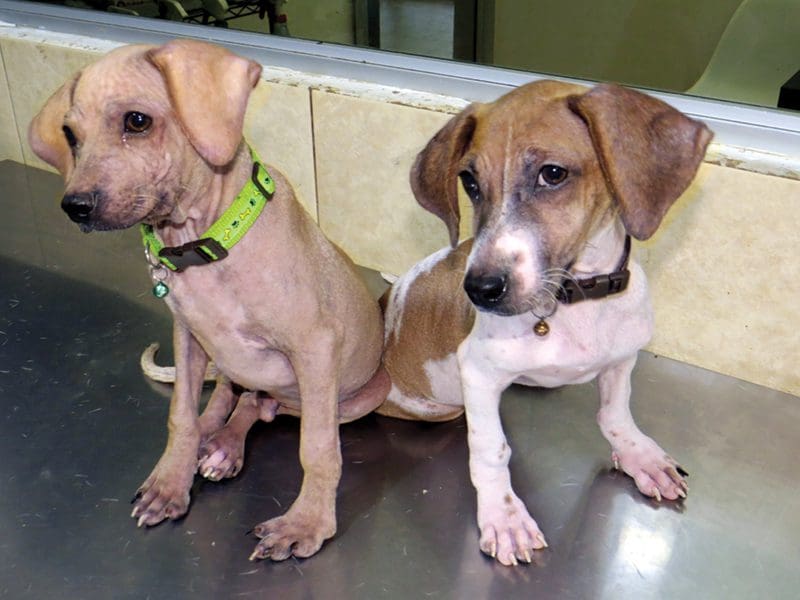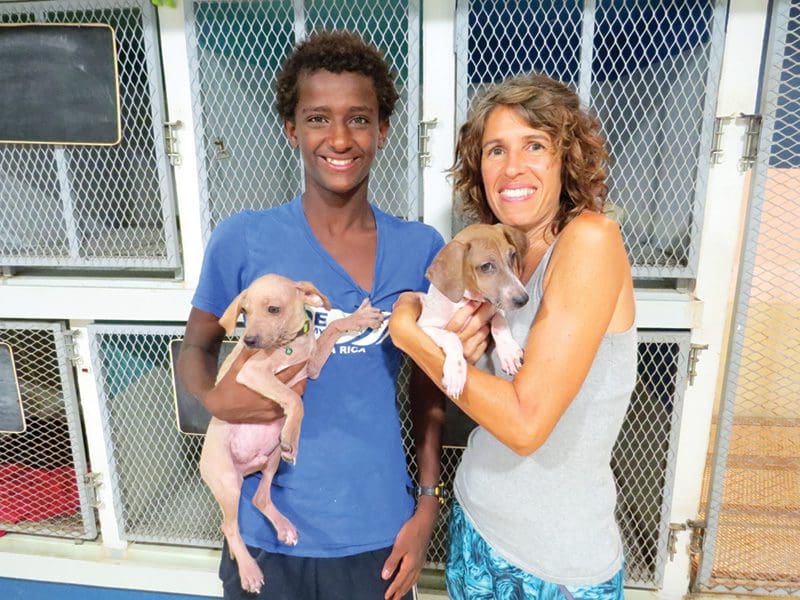
Another Rescue Case: What’s Involved? Priority Protocol Saves Pair of Pups
Another Rescue Case: What’s Involved? Priority Protocol Saves Pair of Pups. As many Howler readers are aware, our veterinary practice is constantly involved with animal rescue cases. Typically, these are dogs, cats and wildlife … even sometimes horses and cows. It’s important to understand that no veterinarian, or the clinic or hospital where we work, has any obligation to take rescue cases. It is something that some of us do because we want to do it, but also because we consider it a community collaboration. With the support of the community, our willingness to help can make a difference.
One of our recent rescue cases was just the latest of many made possible by John Quam, Howler Editor-in-Chief. Even those who only know John through his editorials in this magazine likely realize how deeply he cares for animals. Since my first encounter with the man I now call “Mr. Dolittle” coming to the aid of an animal in need, the lengths he has gone to time and time again are incredible. Rescue cases have a way of searching for John … incredibly, once even a whale!
Both of the roadside foundlings
were adopted — as a pair — by a family
who accepts the commitment.
In this newer case, it was two emaciated and completely hairless puppies that John happened upon while driving. Obviously, they had been abandoned on the road in this alarming condition. Their rescuer did not hesitate to pick them up and seek urgent medical attention.

Rescued pups at veterinary hospital, where they received treatment before leaving together with their new owners.
Our main clinical finding with this pair of pups was skin-related, but the care they needed was anything but straightforward. We follow a priority protocol in such cases. Rescue puppies often suffer from malnutrition with low levels of antibodies in their blood. That means their first vaccination can be given earlier than usual because its effects won’t be blocked naturally. Otherwise, the risk of delayed vaccination while treating skin conditions— a lengthy process — is the puppies could succumb to a viral infection. Meanwhile, full deworming is necessary and initially, segregation from humans and unvaccinated dogs. Once free of parasites, puppies can receive the first booster shot. Their immune system needs at least three boosters to strengthen and be protected against parvovirus and distemper, the main viral diseases fatal to dogs worldwide.
Good quality food is an essential part of a rescue puppy’s care protocol. With lack of essential fatty acids being a common cause of skin issues in stray animals, we provide them with wet food formulated with omega-3 and -6 nutrients. Ideally, we run complete tests to determine whether the skin infection is caused by a fungus, bacteria or mites. Some rescue patients test positive for all three agents, meaning delayed recovery and eligibility for adoption. The skin treatment protocol includes medicated baths and cream applications daily. Human contact is also necessary to ensure rescue dogs are healthy and adoptable.

Photos: John Quam
Fortunately, this protocol had a favorable outcome for the pair of puppies John found starving and hairless on the roadside. These two remarkable dogs started getting stronger quickly, gained weight and growing their hair. With proper treatment and vaccinations, they overcame a bacterial skin infection and non-transmissible mange, and were rid of parasites and ready for adoption. What made a huge difference was their will to survive and get healthy, which unfortunately may be absent in rescue animals who lose the battle. Most important, both of the roadside foundlings were adopted — as a pair — by a family who accepts the commitment of providing the special care they need. Unfortunately, little Hero, the pink puppy, died due to complications but his last few weeks of life were filled with love.
As you can see, there is a lot involved with rescue cases like this. Even with special discounts, and with help from several donors, the cost of caring for the two puppies was in the $300 to $400 range. That’s why we need your support; please consider making a commitment. It does not have to be money — time, transportation and foster homes are other essential needs.
Pet Cancer and Chemotherapy
Wildlife: An Extraordinary Case of Caring
Blood Transfusions for cats and dogs
Pets get STD’s too
What to Expect from a Costa Rica Vet Visit
Pet Traveling: Happy Landings for your Pet
What to Expect when you pet is expecting
Preparing your pets for raining season
Pet Care: Water Health and Safety
Tick Fever or Ehrlichiosis
Spay or Neuter Pets
Snake Bites: A common pet emergency in Costa Rica

